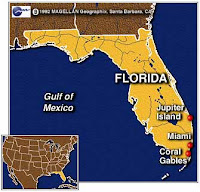Private Wealth Management
Private Wealth Management Trends
 Below is a short excerpt from a recent article I wrote for Investopedia on family offices and private wealth management trends:
Below is a short excerpt from a recent article I wrote for Investopedia on family offices and private wealth management trends:_______________________________
Family offices are private wealth management advisory firms that serve ultra-high-net-worth clients. There are more than 3,500 family offices based in the United States. By offering a complete outsourced solution to managing finances and investments, including budgeting, insurance, charitable giving, family-owned business, and wealth transfer and tax services, these offices set themselves apart from traditional wealth management firms. Although they vary in their level of service, most typically invest heavily in consultants, databases and analytical tools that help them conduct due diligence on money managers or optimize a portfolio of investments for tax purposes.
In this article, we'll review the top three trends affecting family offices, including the rapid growth of the family office industry, the types of family office services provided, and the increasingly sophisticated use of hedge funds and alternative investments by both single and multifamily offices.
Family Office Facts
There are two types of family offices: single-family offices (SFOs) and multifamily offices (MFOs). Single family offices serve one wealthy family, while multifamily offices operate more like traditional private wealth management practices with multiple clients. Multifamily offices are much more common because they can spread heavy investments in technology and consultants among several high-net-worth clients instead of a single individual or family.
Tackling the Trends
Prominent trends fueling the growth of family offices include:
- There is a growing number of high-net-worth and ultra-high-net-worth classes around the world. In most developed nations, the wealthy are accumulating assets more rapidly than the middle class. At the same time, many emerging economies are thriving, with annual growth rates of 4-8%. Many experts have noted that by 2015-2020, China's upper class will be larger than America's middle class. Growth in countries such as China, Brazil, India and Russia will ensure that the family office format of wealth management services continues to grow in popularity over the next five to seven years. (To learn more about emerging economies, see What Is An Emerging Market Economy? and Demographic Trends And The Implications For Investment.)
- Profitability is a growing challenge for family offices. As populations amass greater wealth, large wealth management firms are competing on a cost basis and moving a larger portion of their core services online. While the average person might appreciate saving hundreds or even thousands of dollars in fees each year, many affluent individuals would much rather spend $20,000 to $100,000 a year to ensure that experienced professionals are managing their investments and taxes to fit their specific financial goals and risk tolerances. Read more...
Related to Private Wealth Management:
- Family Offices
- Investment Book
- Family Office Wealth Management
- Family Office Hedge Fund
- Financial Certification
- Hedge Fund Forum
- What Are Family Offices?
- Family Office Management Interview
- Hedge Fund Associations
Tags: Private Wealth Management, Family Offices, High Net Worth Banking, High Net Worth Wealth Management, Private Bank Wealth Management, Private Banking Wealth Management, Private Wealth Management Group, Best Private Wealth Management, Top Private Wealth Management, Family Office Private Wealth Management











